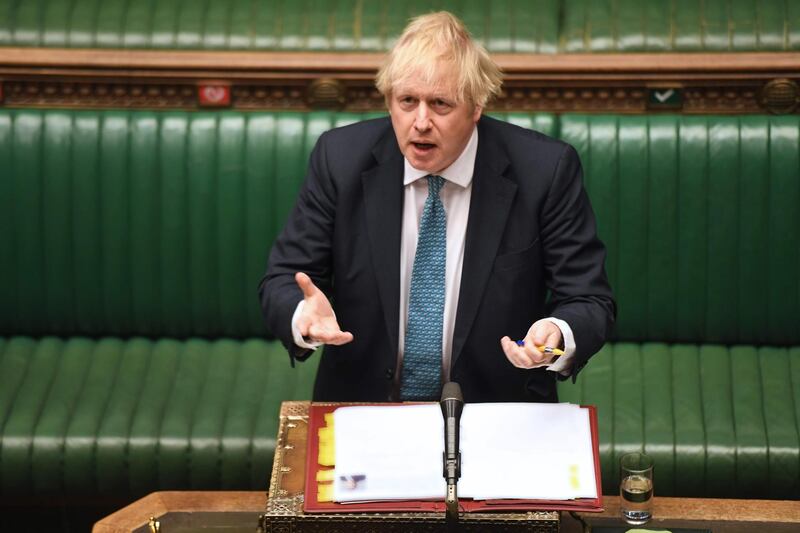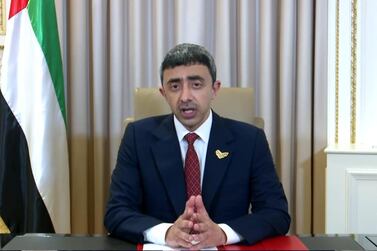Britain's prime minister Boris Johnson will call on the United Nations to develop a worldwide network of ‘zoonotic hubs’ to identify dangerous pathogens before they leap from animals to humans.
In his pre-recorded speech to the United Nations 75th General Assembly on Saturday, Mr Johnson will outline a five point plan to prevent a future coronavirus pandemic.
He will pledge to use the UK’s G7 presidency next year to work with global partners to implement safeguards against a future virus.
His proposal will be to create a worldwide network of zoonotic research hubs to identify a new pandemic before it starts.
"Here in the UK, the birthplace of Edward Jenner who pioneered the world’s first vaccine, we are determined to do everything in our power to work with our friends across the UN to heal those divisions and to heal the world," he will say.
More than 60 per cent of pathogens circulating in the human population are understood to have originated in animals and leapt from one species to the other in a “zoonotic” transmission.
Zoonotic research centres would be charged with spotting dangerous animal pathogens before they cross the species barrier and infect human beings.
“After nine months of fighting Covid, the very notion of the international community looks tattered," he will say.
“We know that we cannot continue in this way. Unless we unite and turn our fire against our common foe, we know that everyone will lose.
“Now is the time therefore - here at what I devoutly hope will be the first and last ever Zoom UNGA - for humanity to reach across borders and repair these ugly rifts.”
Mr Johnson is also calling for a global pandemic early warning system to predict a coming health crisis.
He envisages this would be achieved by a vast expansion of the collecting and analysis of samples and the distribution of findings through health data-sharing agreements covering every country.
The prime minster is calling for a strong manufacturing capability, in the UK and around the world, which will mean tried and tested treatments and vaccines can be held ready to deploy against emerging threats.
A further proposal will call for global protocols to be in place ready for a future health emergency, covering everything from information sharing to PPE supplies, to enable nations to respond "more cohesively and effectively".
Finally, Mr Johnson will say there needs to be a reduction in trade barriers which he believes have "impeded" the Covid-19 response.
Many countries imposed export controls at the outset of the pandemic, about two thirds of which remain in force.
Tariffs on key goods like soap can exceed 30 per cent.
The UK has committed to lifting tariffs on many Covid-critical products from January 1st.
Mr Johnson will announce significant funding to Covax, the international Covid-19 vaccines procurement pool, and to the World Health Organisation.
He is pledging an initial £71 million to secure purchase rights for up to 27 million vaccine doses for the UK population.
This will be in addition to other initiatives by the government to procure any coronavirus vaccine that proves to be safe and effective.
Alongside the domestic investment, the UK will also commit £500 million in aid funding for the Covax Advance Market Commitment, a facility to help 92 of the world’s poorest countries access a coronavirus vaccine.
The funding will support developing countries in tackling the virus and help to halt the global spread of the pandemic.
In addition to addressing global health issues at UNGA, the Prime Minister is also urging international action on climate change and biodiversity.
He will also announce the UK’s pledge of £340 million over the next four years to the World Health Organisation (WHO) – an increase of 30 per cent from the previous four-year period.
It will make the UK the third largest donor to WHO after the US and the Gates Foundation.







